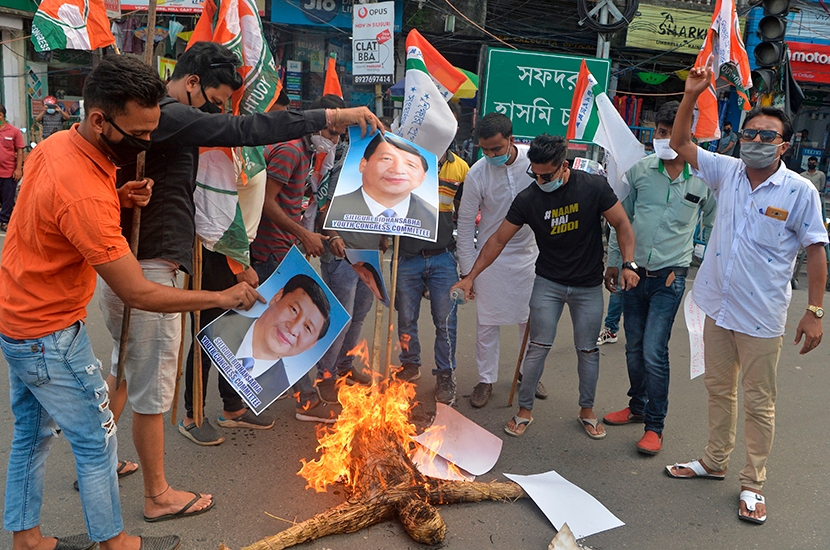When the Chinese Central Military Commission drew up plans for a ‘war of extermination’ which would ‘gnaw the flesh off the bones’ of Indian forces in the Himalayas in 1962, China’s leaders believed that they were solving a problem. ‘It was India,’ as vice minister Zhang Hanfu said to the Soviet ambassador at the time, ‘that rejected peace talks to solve the Sino-Indian border issue, while China consistently adhered to a peaceful solution.’
And so the China-India Border War began, with Chinese troops sweeping through the disputed Himalayan territories, driving Indian soldiers from their positions. To China’s Communist party, military victory meant that India and China would soon be friends. ‘Our conflict with India is one finger out of ten,’ argued Mao. ‘Nine fingers are friendship.’ India had to be ‘taught a lesson’ and China’s war, to the Communist party, was ‘rational, beneficial, [and] courteous’.
Ever since, troops from both countries have patrolled the mountains with only occasional skirmishes. Brawls, when they do come, normally involve fist fights or rock-throwing. It’s not yet clear how 20 Indian soldiers were killed by Chinese forces this time — reports suggested that clubs studded with nails were the lethal weapon — or how many Chinese soldiers have been killed in turn, but it’s the first deadly clash in decades. India has been stepping up construction of roads and infrastructure on its side of the border, and China’s leaders are ever more comfortable using coercive methods to intimidate neighbours large and small.
A People’s Liberation Army statement demonstrated the uncompromising mentality that now defines Xi Jinping’s foreign policy from the South China Sea to Hong Kong: ‘The sovereignty of the Galwan River Valley has always been ours,’ it said. ‘The Indian border troops went back on their word, seriously violating the agreements… We demand that India strictly restrain the front line troops, immediately stop all violations and provocations, and together return to the correct track of dialogue.’








Comments
Join the debate for just £1 a month
Be part of the conversation with other Spectator readers by getting your first three months for £3.
UNLOCK ACCESS Just £1 a monthAlready a subscriber? Log in